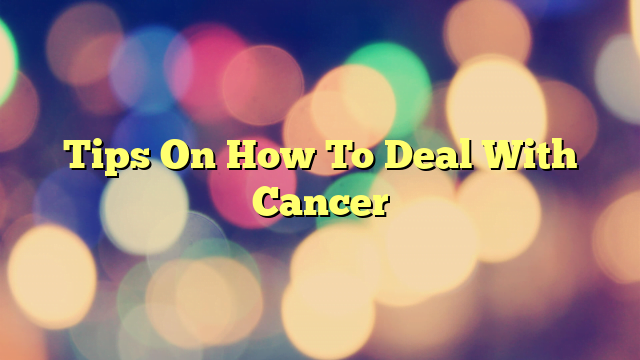Help On The Struggle With Cancer
Help On The Struggle With Cancer
The word “cancer” is a terrifying word to many people, and rightfully so. Most of us know at least one person who has died from cancer, and many of us do not know that much about the signs and various symptoms of cancer. Education about this disease is vitally important.
If you have recently been diagnosed with cancer, it can be overwhelming. To be sure you understand the information your doctor gives you, bring a friend or relative with you to your first appointment. He or she will be a second set of eyes and ears to help you ask questions, understand your diagnosis, and think of possible concerns.
Find reliable sources for cancer information. General Internet searches can turn up a mix of reliable and unreliable cancer information, which can be difficult to wade through and figure out what to believe. For accurate, reliable information visit your hospital’s resource center or library. Also visit websites of reputable hospitals and government agencies. Issues of cancer journals are also a good source of up-to-date information.
Here is a helpful tip for anyone that is suffering from cancer. You should try your best to focus on your goals. Make sure you find time for your most meaningful activities and priorities, while focusing less on frivolous activities. By doing so you can conserve strength and be less stressed.
Lung cancer is one of the most deadly cancers. It is very difficult to treat, but scientists have discovered that diet may play a major role in reducing the incidence of this type of cancer. A diet low in fat and high in fruits, tomatoes and green vegetables all can reduce the risk. In fact, studies show that apples can reduce the risk of lung cancer by as much as 50 per cent!
It is suggested that young woman get the Human papillomavirus (HPV) vaccine before they begin to become sexually active. The vaccine is said to help prevent cervical cancer. HPV is one of the highest risk factors involved with cervical cancer. Other factors include family history. Getting a pap smear regularly is also a great form of prevention.
If you are being treated for cancer, be sure to keep all of the follow up appointments with your doctor. Even if you start to feel like you’re improving, it is still necessary to continue treatment. Effective cancer treatment often comes in steps, and every step must be completed to see full success.
Make the changes in your life that will make for a more positive outcome. Quit smoking, get more exercise even if you do not feel like it, eat better and keep your hopes high. These are the kinds of changes that will give you a better chance in beating your disease.
We hope that the information presented in this article has given you a much clearer understanding of cancer in general. Most of us will be affected by cancer in one way or another at some point in our lives, and knowledge is the key. As always, consult your doctor with specific questions about cancer.


